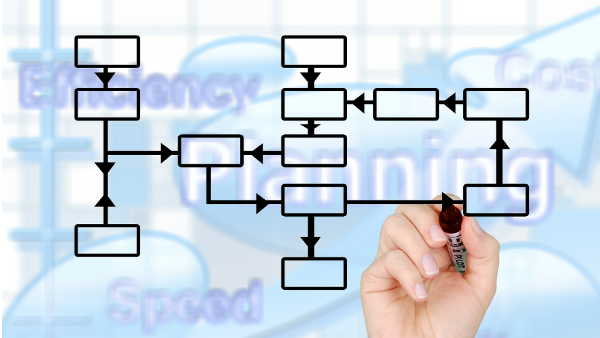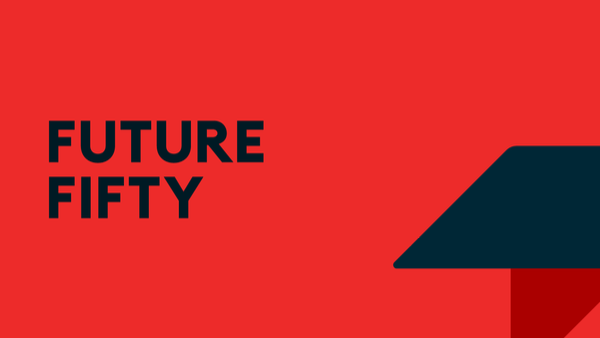Agency vs. Direct Hiring: Which is Better?

As you grow your scale-up, hiring the right talent is going to play a crucial long-term role in the success of your business, which is why it's important that you get this process right.
You’ve got two hiring methods in front of you: One is to use your own in-house recruitment team to hire staff directly, and the other is to outsource the recruitment process to an agency. Choosing which one will work best for you is going to come down to the following questions:
- Do you already have an HR or recruitment team in-house?
- How much budget do you have to put towards recruitment?
- Have you got a significant number of communication channels set up to attract new hires?
- How many roles are you recruiting for?
- How much experience do you have with recruitment?
- What types of roles are you hiring for (temp or long-term)?
Your answers to these questions should determine whether or not you are equipped to hire new employees directly, or whether you need the help of a recruitment agency. But if you want a little more guidance, let's dive deeper into the pros and cons of both direct hiring and agency hiring.
How does the direct hiring process work?
Direct hiring is when a business handles the recruitment process in-house. This involves crafting the job role and requirements, and sharing this description on job boards and social media pages.
The next step in the process is to sort through all the applications, and select the candidates they want to interview. They will then conduct interviews until they find the most suitable person for the position. Direct hiring is often used when companies are only looking to hire a small number of employees or if they don’t have the funds to afford an agency.
How does a recruitment agency work?
A recruitment agency is an external professional service hired by a company to run the entire recruitment process.
Agencies are usually very active on LinkedIn, looking for potential candidates who are open to work, but also have a network of job seekers they can reach out to.
The agency will have a specific process they follow in which they review CVs, do background checks on potential candidates, and match skills to the job requirements. They will vet the final candidate before introducing them to the company. Agency hiring is often used when a company needs to find multiple employees to work on short-term projects.
Pros and cons of using a recruitment agency
Recruitment agencies can be very beneficial when it comes to sourcing talent to fulfill specialised job roles, but at the same time they can be costly.
Pros:
- Less admin for you. If you want to hire temp workers, agencies will handle all of the paperwork, background checks, and draw up the contract.
- Candidates can start right away. Candidates sourced through agencies are usually active job seekers who will be more willing to start working with immediate effect.
- Works to your budget. Recruitment agencies will work within the company’s specific budget but still deliver a suitable output of candidates.
- Shorter turnaround time. Because agencies have efficient processes that are already in place, they will likely secure new employees quickly.
Cons:
- Driven by targets and sales. Some agencies will refer candidates who are not necessarily a good fit for the company, purely so they can reach their recruitment target for the month. They will send through candidates from their network who “fit the profile”, but are not necessarily the perfect candidate. This could impact your company further down the line in terms of employee retention.
- Candidates can slip through the cracks. Because agencies tend to pull candidates from their databases first in order to get individuals who are ready to start working right away, you may lose out on finding other candidates who are not actively seeking a new job, but could be open to a new opportunity.
- There is a cost involved. Naturally, you'll need to pay the agency a fee for their time, connections, and process. This fee can be expensive, especially for a scale-up.
Pros and cons of using direct hiring
If you’re a small scale-up you might be more inclined to involve a recruitment agency to handle your recruitment, but don’t give up on the option of direct hiring just yet.
Pros:
- Cost-effective. If you have good communication channels set up - such as LinkedIn, your website, and other social media channels - you should easily be able to find qualified candidates without having to pay agency fees.
- Finding the perfect fit. If you are directly involved in the recruitment process from start to finish, you have the opportunity of really getting to know candidates and new hires. And nobody knows the company culture as well as you. This will ensure candidates are a good culture fit for your company and that you find the perfect person for the job.
- Build up a database. This will be invaluable for your scale-up as it will mean that you’ll have a pool of candidates to approach for any future job roles.
Cons:
- A lot of work. From having to craft the job adverts, potentially vet hundreds of CVS, go through the interview process and then make the decision on your own, if your team has little to no experience with recruitment, the process could be very time-consuming and stressful.
- Limited selection of candidates. Without the benefit of a recruitment agency’s database, you may have a very small selection of candidates to choose from.
- Might take time. Because the process needs to be handled in-house, potentially by employees who have other tasks and projects on their hands, the process may take longer. So if you need an immediate new hire or temp worker, an agency might be the better option.
Perhaps the best solution - that will benefit both your company and the candidate - is to bring in an agency for only some of the process. This could either be in the beginning, with advertising, or it could be during the vetting process of background checks, interviews, and a selection of a candidate pool for you to choose from.
Cost versus effectiveness
Both options have varying levels of cost-to-company and effectiveness. While agencies can be costly, they do save you time and can work within a specific budget, meaning you might actually save money by using an agency.
However, although agencies could be effective in finding candidates you need quickly, there could be a negative long-term impact on retention, if the new hires are not the perfect fit.
Direct hiring, on the other hand, will likely be more effective in identifying the candidate who is the best cultural fit and does save on agency costs. However, there will still be hidden costs involved, such as advertising, resource and time-allocation, and training. Because of these, direct hiring may cause your company to rush the process, which could lead to an ineffective selection of candidates.
At the end of the day, choosing between a recruitment agency or direct hiring will come down to that list of questions mentioned at the beginning of this article: how much support your scale-up requires in the hiring process; the types of roles you are hiring for.


